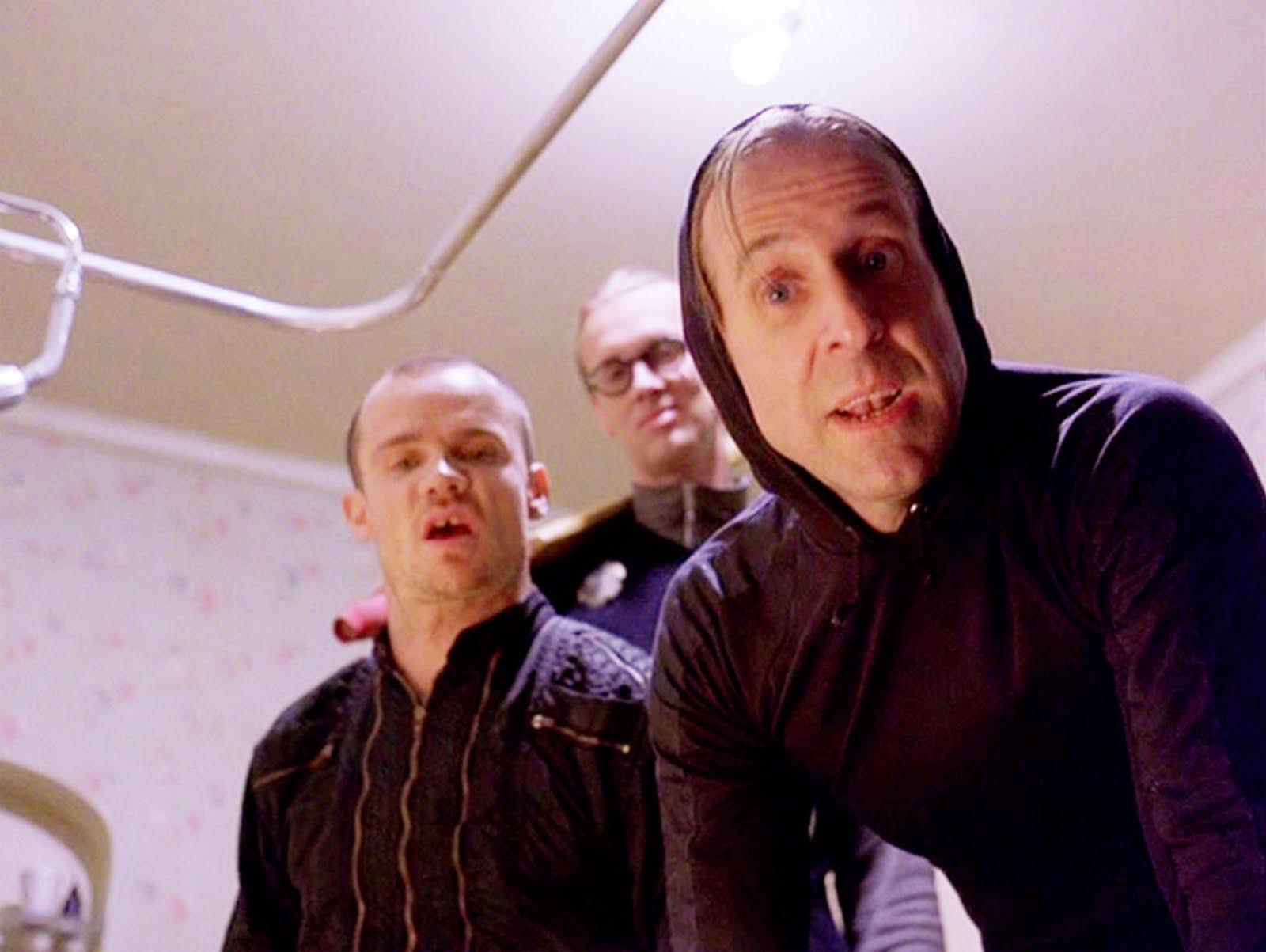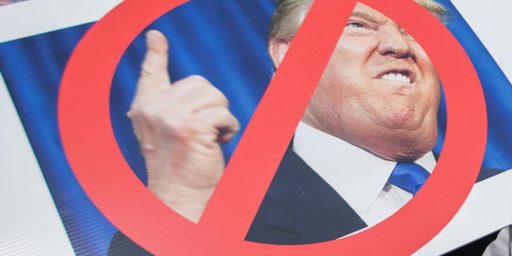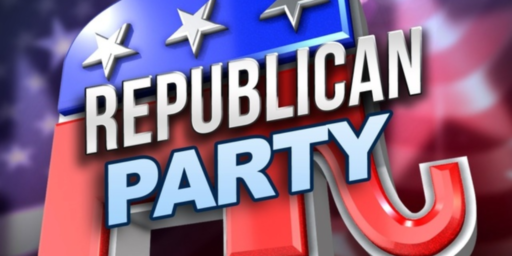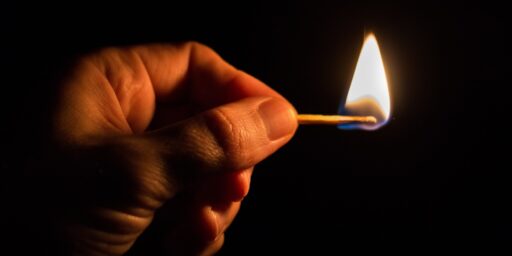The Downward Slide Into Nihilism

I used to think that nihilism was an active philosophy, rather than a passive mindset. Nihilists, in an active sense, would be people who reject all isms — liberalism, conservatism, nationalism, veganism, Protestantism, Daoism — as inherently silly or pointless. From this perspective, if we are just bags of protoplasm, living in an uncaring universe that is rushing to his heat death, what’s the point of any kind of belief? Isn’t belief in something beyond these rude facts just a waste of time, a pleasant fiction covering unpleasant realities? Life for the moment until the last day that you can.
This active, aware form of nihilism always seemed weird, contradictory, and unsustainable. Isn’t the proposition that all beliefs are ultimately pointless is itself a belief? Having never met a nihilist of this sort, I had doubts about whether anyone truly adhered to this worldview, outside of a few goth poseurs, psychopaths, and the Elmer Gantry-ish opportunists who put on the costume of principled behavior to get what they want — money, fame, power, sex, whatever.
That’s not to say that there aren’t nihilists of a different sort. The commonplace form of nihilism is more passive and unaware, and far more dangerous.
Nihilism, in this other meaning, isn’t the rejection of all beliefs. In fact, many people who are nihilists consider themselves to be true believers in some set of principles. Nihilism is really the absence of any motivation to follow these principles in practice. For the common breed of nihilist, current exigencies always trump principled behavior. The opportunity to do the right thing, to behave in a principled fashion, is a luxury for the future. Of course, that future never comes, so practically speaking, the principles don’t really exist at all, except as a self-congratulatory litany of what makes me a better person than you, even while I’m doing terrible things to you. For instance, many Soviet commissars believed in a future workers’ paradise, even as they were shooting living, breathing workers in the head.
The passive, unaware version of nihilism is what has poisoned the American body politic, and led to the events of 2020 as the most troubled year in American history in generations. COVID-19 killed 1,009 Americans yesterday, and the Current Occupant continues to lie about whether the pandemic is even still a threat. People shrug and say, that’s just him, or that’s just politicians, or he is a flawed human being on the road to do greater things. A nominee to the Supreme Court is unwilling to admit that she has any real judicial opinions, a truly unbelievable claim. So when does the voice of ambition stop whispering in that person’s ear — when she becomes Chief Justice? Or perhaps never, since there is always some perceived threat to one’s position, even when it is life-long? The man who is pushing this nominee, Mitch McConnell, famously abandoned his “principle” from 2016, and has otherwise destroyed all norms of bipartisanship, comity, and fairness from the Senate, in order to install a certain breed of judges in the federal courts. The erosion of the judicial branches’ legitimacy as an independently thinking part of the government doesn’t seem to enter into McConnell’s calculations. And for some of the people who, in the face of a pandemic, fires, economic catastrophe, civil unrest, international disgust, the corruption of public agencies, structural racism, the emboldening of white supremacists, the use of phrases like “enemy” and “traitor” to describe one’s neighbors, and environmental collapse, is it unfair to say that they, too, fall into this category of nihilism, in which all current calamities are justified in the name of some future good?
Power — the seeking of it, and the protection of it — certainly breeds this kind of nihilism. I’ve met people on the other side of the aisle, including politicians, left-leaning thinkers and celebrities, and others, to whom I would apply the same description. However, the nihilism of the American right far outstrips anything you see in other political quarters, in large part because the Republican party, the right-wing social media apparatus, and their partners in social media, have become the de facto party of nihilism. Not belief is sacred, not fiscal responsibility, opposing corruption, eliminating tariffs and other protectionist economic policies, standing by our allies, standing against our rivals and foes, defending democracy, or maintaining the rule of law. The Republican Party, its allies, and many of its supporters, have switched positions on these issues with a speed and unashamedness that would make totalitarian propagandists like the Communist International of the 1930s gape in astonishment.
It is fair to say that the Democratic party has, to use the common cliche, lost touch with its roots in the working class and rural communities. With fierce determination, the Republican Party has excavated its roots, burned them thoroughly, and scattered the ashes, leaving no traces behind.
Yes, power can dissolve someone’s moral core. Power may tend to corrupt, but it doesn’t have to. Just as adults have to learn how to be loving and firm as parents, maturity demands that people, when wielding power, have to balance political expedience with moral necessity. Not everyone is capable of doing that. Some succumb, just as some celebrities collapse under the weight of their fame. Institutions should help people from taking these dark turns, or when they do, remove them from where they can do harm.
Instead, one political party has embraced nihilism. When you have reached a point where, as in the case of Lindsey Graham, you deny the words you said a few years ago, even when anyone can search and find them within seconds, you are beyond simple political expediency. When you are afraid to stand up to a mendacious demagogue, when a thousand Americans die each day because of his incompetence, because you fear for your re-election chances, you have arrived at the point of nihilism. If you cannot act to save American lives, then the only justification you have for holding on to power is holding on to power. Public service is no longer an issue, when the most basic responsibility is to save Americans from preventable deaths.
But again, most of the people I am describing may believe themselves to be principled, well-intentioned people. That is what makes this form of nihilism extremely dangerous. In one of the best episodes of The Americans, a woman about to be murdered asks her assassin, a Soviet sleeper agent, “Why? You think doing this to me will make the world a better place?” When her murderer answers yes, the victim replies, just before dying, “That’s what evil people tell themselves, when they do evil things.”






I haven’t read the article yet, but I approve of the screencap.
About a week ago I was going to call McConnell a nihilist, but then I thought well maybe he’s not because he certainly believes in power for himself. But that’s not really a principle, that’s just greed. I decided at the time that amoral was a better description, but maybe nihilist fits too.
Some pushback. Para 1 – 4 seems more like “hypocrite”.
I know this is a facile take, maybe shallow, but I despise a person who abandons their principles for gain. Hate the act. Hate them forever. Inexcusable.
Even that may be sociopathy not nihilism. Sociopaths want stuff.
Re the pic up top. This is pettiest gripe about The Big Lebowski, but no German would say “Chonson”. The Coens are notorious for scripting every er, um, and pause. Chonson was chosen because it sounded funny. It is a fable afterall.
I am about to the worst most dickish thing. Holy crap, I am so sorry, but you need to define your terms. That hurt to type and I feel like a total d-bag, but I also sort of mean it.
Most of what you associate with nihilism is pure dickishness. Dickishness is an assertion of power. If I want power I believe in power.
The 2016 folks who advocated that it all should burn also wanted an outcome. Plus “all” would have some hard caveats even amongst the hardcore.
I bought a hoodie at Target. It is thin and black. I bought the S size by accident – I’d wanted M.
It totally looks like the Karl Hungus hoodie. It’s kinda spooky. I’m a skinny Swede. I sorta look like Stormare.
He has the better voice × 1 million though. That man is fucking talented with his voice.
The small size hoodie works as a winter inner layer. Adapt and overcome.
I don’t think any of it is nihilism. I think you just don’t understand what principles the current crop of Republicans stand for, or you are unwilling to understand them.
It’s not small government, freedom, low taxes, deficits, not-deficits, Israel, originalism, big business, small business, guns, Jesus, supporting the troops, banning abortion or anything like that. Those are just tools, and when working on something, you pick up the right tool for the job.
No, the Republican Party isn’t about any of that. It’s about hatred. Nihilism would be an improvement.
Not all Republicans, though. Some just really believe in the tools.
To torture the metaphor further, someone like James Joyner sees people with wrenches and likes plumbers, becomes a Republican, and it takes him a while to realize that they really are just paying lip service to pipes and are more often than not using the wrenches to beat black people and minorities and anyone who opposes white supremacy.
It’s not hypocrisy to switch from a flat head screwdriver to a philips head screwdriver. And it’s not hypocrisy to go from massive giveaways to the wealthy to lamenting the deficit based on who controls the White House. And our principled conservative friends just get scammed. I’m pretty sure Mittens Romney is also getting scammed.
But say what you will about the tenets of White Supremacy, dude, at least it’s an ethos.
I see what you did there.
@de stijl: I hear you. I’ve always treated hypocrisy as an external label: “You don’t practice what you preach.” Nihilism is one reason why people are hypocrites. They may not believe in anything (the first type of nihilism), or there is always some delayed, higher, and ultimately unattainable good that justifies their unprincipled behavior.
Shame might also delineate a dividing line. Other types of hypocrites can be shamed. I was weak, and the temptation to take money from Wall Street was too great. Nihilists can’t be shamed, because (1) there are no reasons to be shamed, in a world devoid of anything sacred, or (2) there’s always a “justification,” no matter how awful the action.
I didn’t say it in the post, but this question of nihilism goes to the heart of politics, an outcome-based ethos (see Max Weber’s “Politics As A Vocation”). Someone may not be true for a lot of reasons, such as immaturity, or the sense that politics is more a domain of private entertainment than communal responsibility. For a nihilist, political outcomes don’t matter, other than what might serve a momentary private interest. Phrases like “owning the libs” or “all politicians are the same” fall into this worldview.
Perhaps nihilism isn’t so much not believing in anything, but just not giving a damn about anything.
@de stijl: Or, take it back and make an exchange. But whatever floats your boat. Everyone needs a gig and a place to row it.
People with rising hopes, who are frustrated, can become revolutionaries. The brutalized Russian peasantry didn’t form the Communist Party, the party was created by intellectuals who didn’t see themselves reaching the status they aspired to. Much the same in 1776 – plantation owners, lawyers and merchants, all subordinate to nobility. Ditto France.
People without hope, on the other hand, either surrender or launch rage attacks that peter out for lack of organization or direction. Slave rebellions, for example. Bread riots. Non-ideological, simplified nihilism: burn it all down. If I may repurpose Kris Kristofferson (though you can hear it as Janis), nihilism’s just another word for nuthin’ left to lose.
@Michael Reynolds: That’s an excellent point. Revolutionaries generate pages upon pages of content, analyzing the current situation, envisioning the brighter future, laying out a roadmap for how to get to the future. In contrast, the Republican Party didn’t even have a platform for this election. I would not honor them with the label of revolutionary.
I would argue that Republicans are not nihilists, they have principles. They just have no principles they can speak of in public. The funders of the Party want to create a libertarian paradise – for themselves, with no taxes or regulations – for themselves, and they can hardly say so. The politicians and other Party pros want to do whatever the funders want, and they can hardly say that. And to make this work, they’ve sold the voters a form of soft racism that the voters don’t want to recognize in themselves, much less be open about.